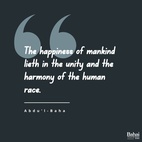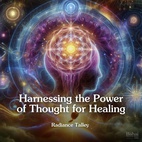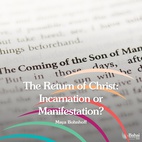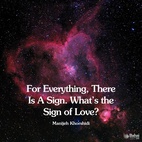The views expressed in our content reflect individual perspectives and do not represent the authoritative views of the Baha'i Faith.
If a man detaches from all things, has the humility to consider new ideas and regularly prays for God’s guidance, would such a true seeker find God’s new messenger wherever he appears on Earth?
I wanted to explore this central question as I started writing my new novel, called The Wise Men of the West—A Search for the Promised One in the Latter Days.
This statement about a true seeker from Baha’u’llah’s Book of Certitude particularly encouraged me:
If in the uttermost ends of the East the sweet savors of God be wafted, he will assuredly recognize and inhale their fragrance, even though he be dwelling in the uttermost ends of the West. – p. 197.
We know that clues concerning the coming of the Promised One appeared in many places around the world in the early 1800s, after the First Great Awakening of the 1730s and 1740s, marked by an increasing awareness of the importance of the individual taking responsibility for his own spiritual salvation and progress.
Another widespread spiritual awakening took place most notably in the northeastern United States, as well as in parts of Europe, where several biblical clues led large numbers of people to expect Christ to return during the 1840s in what became known as the “Second Great Awakening.”
Yet, as compelling as those clues may have been regarding the timing of Christ’s return, everyone seemed intent on clinging to a literal view of the manner of his appearance. For instance, looking to the verse in Revelation 1:7 that said “every eye shall see Him,” many concluded that it was not necessary to go forth and search for the Promised One, because he would be easily visible to the outer eyes, without considering that this verse may have referred to our inner spiritual vision.
Many also failed to realize that biblical references to the “end of the world” were all actually a mistranslation in the King James Bible from the original Koine Greek. The Greek term – eon – should have been translated as the “end of the age.” Almost all of the recent translations of the Bible have now corrected this error, but the public mind still associates the return of Christ with the end of the physical world.
Of course, most also accepted without question that the return of Christ would naturally mean the Christian message would be proven correct, and all other religions would thereby be proven wrong.
But God is bigger than our finite minds might imagine. Although the Creator of Christ also created the universe, the whole Earth and all of humankind, it did not seem to dawn on anyone that the question of the return should be considered from a larger perspective.
At the time, few Westerners knew anything about religions outside of their Judeo-Christian heritage, nor did they consider these religions worthy of their attention. Very few had any idea that other religions might have their own expectations of the coming of their own Promised One. Among those few, they generally saw such predictions as an opportunity to prove which religion was right and which was wrong. The idea that God could simultaneously fulfill the prophecies of all religions was unthinkable, especially when oversimplified literal interpretations ensured that their prophecies were mutually exclusive and contradictory.
How, for instance, could the Promised One descend from the sky, as many Christians expected, while at the same time, arise from the ground, as some Muslims expected? How could he come from the west, as many of the Buddhists expected, while at the same time come from the east, as Jesus had indicated? How could he destroy all of the oppressors, when the cherished leaders of each religious group had actually become the oppressors of the others?
But, I wondered, what if there had been a “true seeker” in America in the 1840s? What if someone who had fully detached himself from the normal materialist expectations sought out the appearance of one with Christ-like qualities – particularly the quality of all of God’s messengers, innate knowledge from a young age? What if someone willing to travel to the Holy Land to conduct his search learned from everyone he met along the way, including not only members of other Christian denominations, but also, members of entirely different religions, in pursuit of his quest for the Promised One?
What might such a true seeker have found? If the fragrances of the Promised One’s teachings were wafted in the East, could a true seeker from the West really find Him?
To answer these questions, I wrote a novel which follows the path of two such seekers. Their journey to the Holy Land in 1843 and 1844 opens additional doors for them, as they encounter some shocking discoveries. For instance, while seeking to understand the meaning of “1260” – one of the key numbers found in the prophetic books of the Bible, and the only one found in the two most prophetic books—Daniel and Revelation – they learn that this matches exactly the year 1844 in the Islamic calendar. The discovery that much of Shia Islam also expects their own Promised One in that same year shakes these Christian seekers to the core, causes them to think beyond previous constraints and ultimately convinces them to push eastward to learn of details of a Shiite understanding from a famous teacher in Karbila named Siyyid Kazim.
The Wise Men of the West, in some respects, mirrors the story of the Wise Men of the East from Jesus’ time. Those wise men traveled from Persia westward to find the holy messenger whose appearance Zoroaster had foretold. Now, Baha’is believe, those from the West can travel eastward to Persia to find the new messenger whose appearance Jesus foretold.
Jay Tyson’s new novel, The Wise Men of the West—A Search for the Promised One in the Latter Days, is available here.

















Comments
Sign in or create an account
Continue with Facebookor